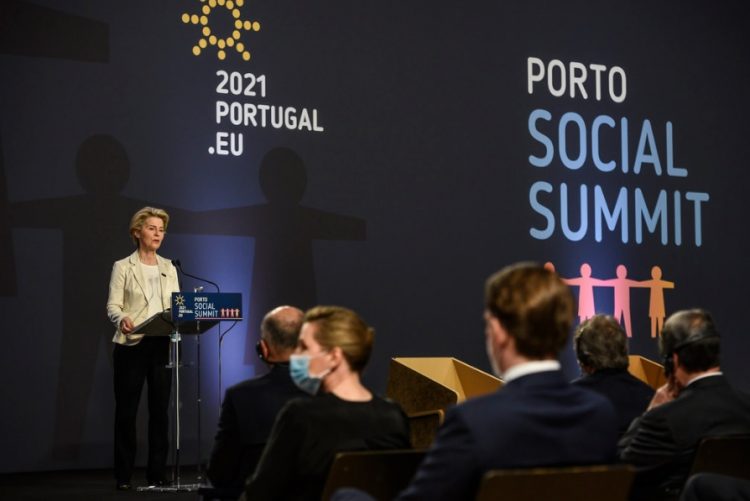By Federico Nastasi, local technician for Central America in the area of Social Policies, part of the EUROsociAL+ European Union Programme and in IILA

Foto: 2021PortugalEu
On 8 May 2021, the European Commission, European Parliament and European Council representatives, together with a number of large social organisations, such as the European Trade Union Confederation and the European Platform of European Social NGOs, signed an ambitious Commitment for the implementation of the objectives of the Action Plan of the European Pillar of Social Rights.
The event took place within the Porto Social Summit, organised by the Portuguese Presidency of the European Council, which was the first occasion for a face-to-face encounter between European leaders in 2021. Government authorities meeting at the Summit, in turn, issued a Declaration endorsing the Pillar and its Action Plan, which emphatically stated that “Now, more than ever, Europe must be the continent that is synonymous with social cohesion and prosperity. We reaffirm our commitment to work for a social Europe.”
As stated in the Special Report on the Plan, published here by the EUROsociAL+ Social Policies area, the Pillar is a route map towards a “social” Europe, with 20 principles and rights organised into three chapters: (i) Equal opportunities and access to the labour market, (ii) Fair working conditions and (iii) Protection and social inclusion. The plan, approved in March this year, has been established for the full application of the Pillar, not only in the current context of recovery, but also in the long term, proposing a series of initiatives and three major objectives to be achieved by 2030 throughout the EU: (1) at least 78% of people between the ages of 20 and 64 should have a job, (2) at least 60% of adults should participate in training activities each year and (3) the number of people at risk of poverty or social exclusion should be reduced by at least 15 million, including 5 million children. These objectives – measured with clear quantitative goals – are part of the definition of a new development model that allows for a post-COVID-19 economic recovery, within the framework of a green, digital transformation. They represent scope for a convergence towards a “social normative code” at a European level, a political instrument that proposes a social sector investment agenda that is ever more present in national plans and reforms.
The actors who signed this commitment at the Porto Summit asked EU Heads of State and Government to establish ambitious national objectives that would adequately contribute to the achievement of common objectives. At an EU level, significant initiatives are already being carried out within the framework of the Action Plan, with others to be organised over the coming years, including the European Child Guarantee and a directive on the minimum wage.
There is also an international dimension to the application of the Commitment, affirming Europe’s role as a responsible world leader. In relation to this last aspect, EUROsociAL, an EU programme that aims to contribute to improving social cohesion in Latin America is one of the instruments for the EU’s international actions in social matters, contributing to affirming the role of the EU as a responsible world leader.



